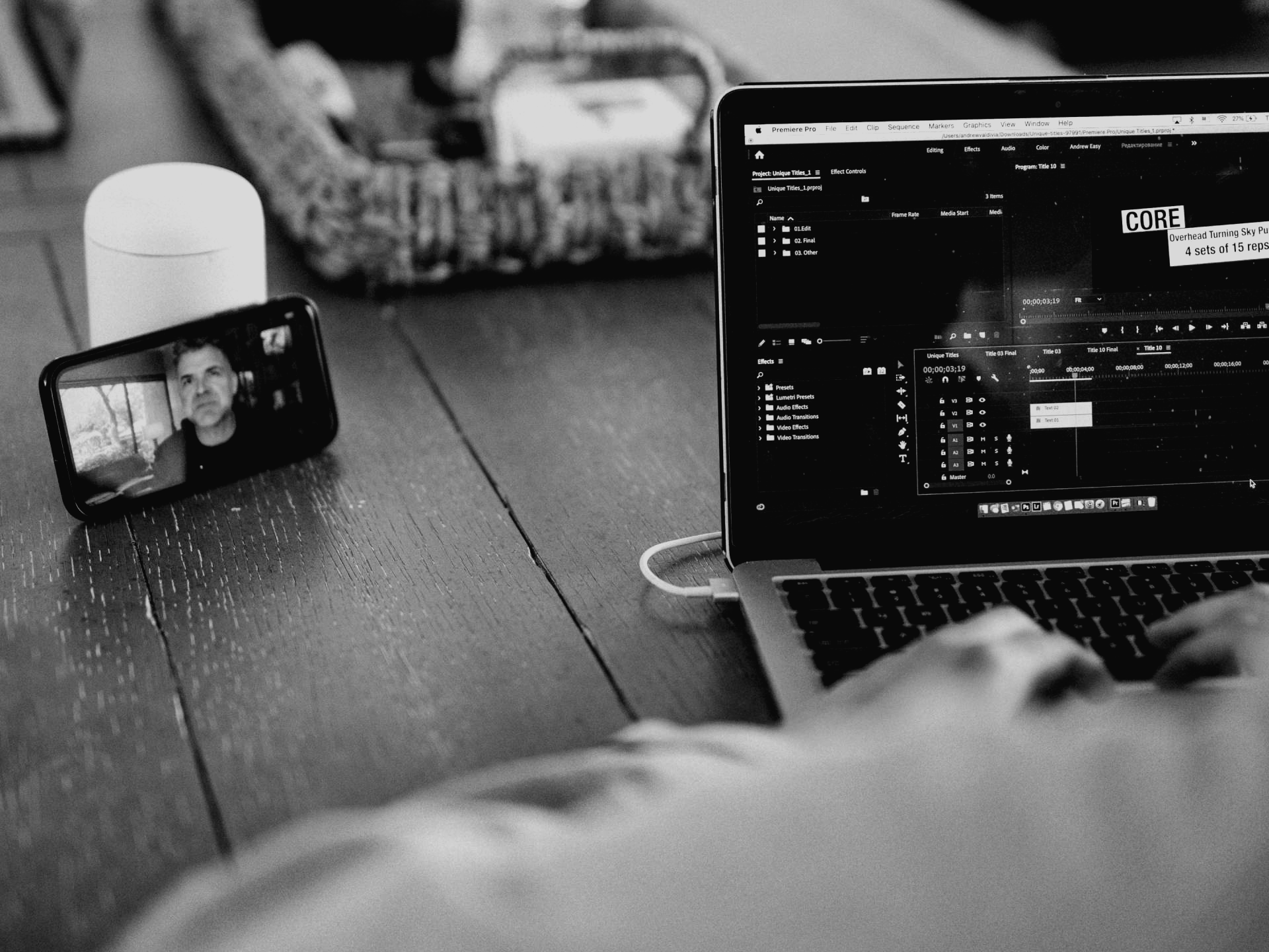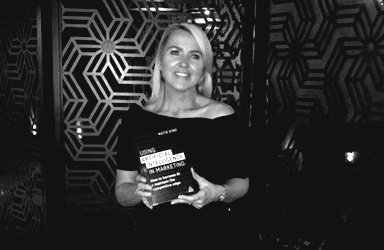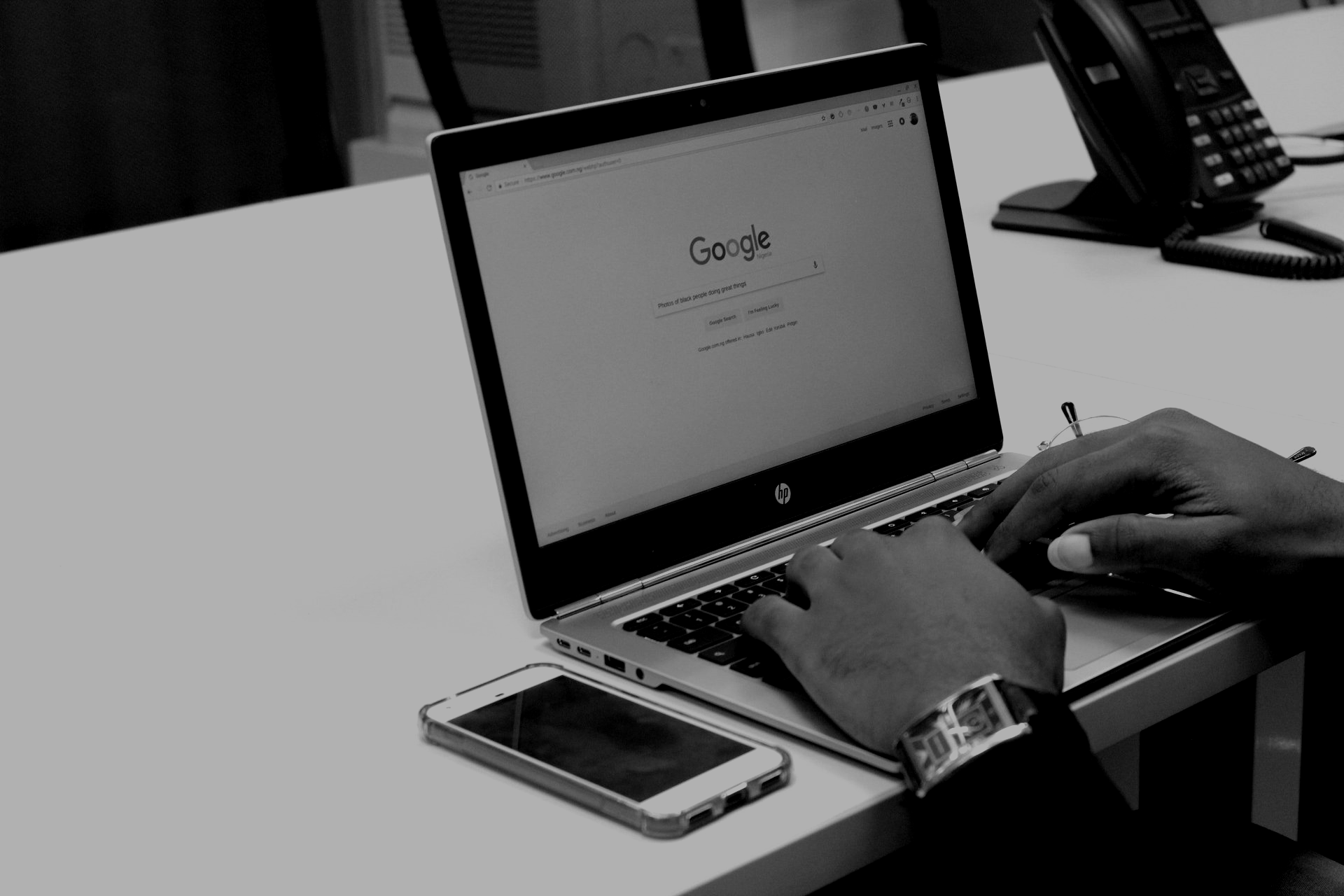Zoodikers Consulting: A New Chapter in a Decade-Long Story
I’ve spent over 30 years in Marketing. I started by working for other companies, first in-house at a huge telecoms company and later at consultancies owned by other people. About ten years ago, I found myself with two incredible young daughters who needed me, and a decision to make: did I want to keep playing by someone else’s rules, or was I ready to take the leap and be my own boss? I decided that I was, and that’s when I began Zoodikers Consulting.
Around the same time, I’d really taken an interest in digital and all of the potential in that space that many businesses weren’t exploring yet. This was back when social media was still quite new. Instagram hadn’t event launched yet! When I made the decision to start Zoodikers, I felt something new burgeoning and I was really keen to get involved in it. I wanted Zoodikers to be something different; I wanted it to have social at its heart.
But at the same time, I had all these years of experience in more traditional communications under my belt and loads of insight to offer. So I wanted to create a perfect storm of the old and new, and be someone who knew the ins and outs of achieving marketing and business success in an increasingly digital world.
And what a decade it has been! We’ve worked with businesses of all sizes and across all industries, and consulted executives at every level. We’ve had larger teams in big offices, and smaller skilled teams working remotely around the world. We were almost acquired, and we’ve helped cultivate some really talented professionals in the industry. In 2014, we were awarded the Gold Standard by Youth Employment UK. We’ve created award-winning content for our clients. We’ve come a long way, but always stuck to the core goals I set when I started out.
About three years ago, digital was no longer up and coming; it became essential. I didn’t want us to grow stagnant. I’m someone who very much wants to be on the cutting edge of things, and who wants to be able to help deliver clients innovative solutions and push the envelope. This led me to get involved with artificial intelligence (AI), which then led to me writing my book
and starting an AI-focused consultancy called AI in Business.
I admit, in the face of all this newness and the excitement and momentum it created, Zoodikers took a bit of a backseat. Not completely, as we still work with a wide range of amazing clients and brands and have continued to deliver top quality services. But because of how current AI is, I began leading with AI in Business, which caused some confusion for clients and contacts looking for the Marketing and PR services I’d built a great reputation for delivering.
That is why today—and this blog—marks a new chapter for Zoodikers Consulting, a decade after we first set up shop. My team and I sat down and pinpointed what it is that we do best, what benefits we can bring our clients, and which areas we feel businesses need the most help in. From here, we came up with a new logo and a new website that we feel accurately reflects who we are now, and sets us up for a successful future.
Our new logo is akin to the one we use for AI in Business. This was a purposeful decision to demonstrate that the two brands are related, but not the same. AI in Business will remain as the hub for our AI, tech, and digital and business transformation-focused services. Zoodikers will continue on as a full-service marketing, PR, social, and comms consultancy. The best part is that our clients will benefit from our knowledge and expertise in both areas, regardless of which brand their project falls under.
You’ll find the full details of our service offerings on the new Zoodikers.com. Here you can also expect blogs covering the latest tips, trends, and insights direct from me and my team. I’ve always prided myself on having a fantastic team at my side, and I am excited for you all to become acquainted with our team in this way.
Lastly, thank you for all of the support over the past 10 years. To clients of the past and present, it’s been our pleasure to have you as part of our story and to have the chance to help you write your own. To clients of the future, we look forward to moving ahead together and helping you to succeed.

It seems like only yesterday when artificial intelligence was touted as the next far-off technology trend looming ahead. Now, AI is everywhere we look, as more and more businesses integrate this technology into their tools and practices. Since the far-off trend of AI wasn’t as far as it may have seemed, many future focused marketers will now be setting their sights on what comes next. Now that AI is here to stay, what might the next big technological disruption be? Here are three mar-tech advancements you should be on the lookout for, and tips on how they may impact your content. Smart Signage Imagine you’re in the tube station when all of a sudden, the advert you’re passing changes to one that seems almost as hand picked just for you. Maybe it’s related to something you were searching for earlier, or it may appear to be plucked directly from your mind. As you keep walking, more signs change to reveal more things you’re interested in. Then, you look behind you and notice them changing again as someone else passes by, their screens displaying something totally different from what was shown to you. This futuristic concept sounds like something straight out of a sci fi franchise but actually, it isn’t too far off from the mainstream. It’s smart signage, a currently underutilised capability of AI that some are beginning to explore. In the future, with enhanced and generalised use of facial and biometric data, real-time advertising could easily become the norm for Out of House marketing campaigns. Billboards, adverts on public transport, and shop displays may one day be able to pick up our devices and deliver us an in-the-moment advert related to our search histories or location data, which may feel a bit invasive but could also mean more personalised experiences and better advertising for us as customers. Marketers will have more creative license with the Out of House marketing content they produce, with a more digital focus than what they may currently be accustomed to. The format of this signage will allow for more interactivity, movement, and personalisation than the static advertising we have now. Web3 It feels like we’ve had the internet for a lifetime, but it’s only been ours for less than 30 years. The ‘World Wide Web’ entered the public domain in 1993, forever reshaping the way we live our lives. Its early days were primitive, with dial-up connections and static webpages as the norm. There were very few content creators at this time. Digital marketing did not exist because advertising was banned in the internet’s early form. Therefore, ‘traditional’ media still dominated the marketing mix. This initial period of the internet’s lifespan is fittingly known as ‘Web1.’ But just as we grow, mature, and evolve with age, so did the internet. ‘Web2’ is how we have primarily known the internet, and how we think of it today. The introduction of JavaScript revolutionised webpages with movement and expanded the possibilities for content. Web2 also saw the rise of social media and various key players in the internet space (think: Google, Facebook, etc.). Content sharing and community building exploded in Web2. We have millions of content creators in Web2, with everyday users having the capability of creating and sharing their own content online. However, those few key players dominate where and how that content is shared. Take Meta, for example. This one company owns three of the top social media platforms: Facebook, Instagram, and WhatsApp. Google, the world’s top search engine, also owns YouTube, which is the second most popular. So, while we have masses of content and creators, only a handful of big players dominate the internet game, which has led to some public mistrust of ‘big tech.’ The next generation of the internet, known as ‘Web3,’ aims to change that by focusing on decentralisation and putting the control back into the hands of creators. It focuses more heavily on experience. Some of the technologies we’re seeing trend now will contribute to this, such as virtual and augmented reality, AI, cryptocurrencies, and so on. We aren’t fully in Web3 yet, but we are gradually moving in that direction. As it is still early days, there is no clear framework to follow to prepare. The best thing today’s marketers can do to prepare for tomorrow is to begin experimenting with some of the technologies that will shape Web3. The Metaverse One early element of Web3 that is growing now is the ‘Metaverse,’ a world created in virtual reality. Many brands are already entering this space. Samsung, Nike, Louis Vuitton, Coca-Cola, Gucci, and Zara already selling their products digitally in the Metaverse. Even Sotheby’s has begun selling digital real estate in this new virtual world. As the Metaverse grows in popularity, it’s not unfathomable that marketers may soon find themselves marketing non-physical goods and virtual services. The principals of great content will remain the same, prioritising engagement and experience. How you approach these experiences may need adapting for the virtual world. There will likely be a greater focus on audio and video content to create more immersive experiences, but written content will still have its place. It may just take a different form. For example, instead of a blog, a company may create a virtual library in the Metaverse that customers can visit with their avatars in order to get information. The possibilities are truly endless, making this an exciting time for creativity in content creation. While some of these tech trends are still in their exploratory stages, we learned with AI that those who prepare early gain a competitive edge. If you’re looking for help futureproofing your content strategy, or for an expert team to help you create it, get in touch with us.

In 1996, Bill Gates published an essay on the Microsoft website titled, ‘Content is King.’ In it, Gates speculated that content would be the true lifeblood of the internet. His foresight was correct, and here we are over a quarter of a century later living in a digital world inundated with content. Since Gates published his original essay, we’ve seen the birth of social media, the advent of search and display marketing, the early disruptions from artificial intelligence (AI) and automation, major shifts towards more digital habits, voice search and so much more. Honestly, we could write another full blog about the trends that have come about in the past 3 years alone. With each of these trends came new tactics and accompanying best practice. While some stuck, others disappeared almost as quickly as they came. Yet through all the trends and disruptions, one tactic has remained evergreen: content marketing. What is it about content marketing that has allowed it to withstand the test of time? Most of its value can likely be distilled down to its adaptability. Content is pliable, able to be moulded into whatever we need it to be for whatever purpose we may need it to fulfil. Formats changed, and content changed to suit them. As tactics and tools evolved, so did the content used. That’s why so many of the new tools and tactics that have sprung up throughout the past 20 years were built with content at their core. Take social media, for example. Social platforms are purely content driven and essentially cannot exist without it. What would Instagram be if no one posted on the feed or uploaded stories? What would you find on YouTube if no one created and uploaded videos? SEO is another trend that took marketing by storm in recent years. Most of the ranking for SEO was driven by various factors within a site’s content, such as keywords or overall quality. These are just two examples, but you could pick any marketing trend or tactic from the past decade, and it would still link back to content somehow. There must be a reason why tactics, formats, and tools grew around content rather than evolving beyond it. When you stop to consider why that might be, it becomes abundantly clear why content is still king after all this time. Content Builds Brands Who you are as a business, what you stand for, what you offer the marketplace, and what purpose you serve are all communicated through the content you produce. In order to be successful, your brand should be consistently represented across every touch point and every interaction. Your website, blog, social media, and third-party media content all contribute to the overall story you are telling, and make it possible for you to shape how you are perceived by your existing and prospective customers. Having the narrative in your own hands is an incredibly powerful capability. Not only that, but your content can help you build authority and thought leadership. You can take ownership of specific topics in your industry simply by producing quality content associated with those subjects. That way, when your customers or industry peers go searching, your relevant content makes you easy to find. Having a clear voice in the right conversations can help you build credibility with your audiences and open new doors. Content Attracts Audiences Targeting is a major challenge for any marketer. How do you align your brand with the customers you would like to do business with, or how do you attract ideal customers to you? Typically, you cast your net via the content you produce. The imagery used, the language and tone you adopt, and the topics you discuss can help you to align yourself with audiences who resonate with your brand. That way, you end up attracting more of the right customers instead of wasting time on those who may not identify with your business’s persona. Content Often Kickstarts the Customer Journey Your content is often the first impression a customer will have of your business. Whether they’ve stumbled across one of your posts on social media, read an article you produced, or came across your website in a search, what they find within your content will often spark make-or-break decision making regarding whether they will choose to continue down the funnel and do business with you. Ensuring that your content is of good quality, conveys the right messages, and contains adequate information to help inform that decision making can help to make that first impression a strong one. Content Lives On and On Trends in the consumer market are cyclical, and you never know when something that was once topical will return to the forefront. The good news is that once you publish a piece of content, it will continue to live on online and bring value. Good content takes time and attention to generate, so being able to maximise your team’s efforts is incredibly valuable. The list of content marketing’s benefits stretches on and on, and therefore it’s safe to assume that this tactic isn’t going anywhere any time soon. If you’d like some help with your content strategy or are looking to outsource your content creation to an expert team, get in touch with us.

The past several months have presented many organisations with challenges to their purpose statements. Communicating in a crisis is never an easy feat, but when you’re navigating incredibly important topics such as health & safety and racial injustice, it becomes an even slipperier slope. Failures in these attempts aren’t always caused by the messages themselves. In fact, most of the time the backlash comes from disconnects between the message and the organisation’s everyday activities. Back in January, our CEO Katie wrote a fantastic blog about the importance of corporate purpose and adopting a stakeholder mindset. All the ideas in that post are extremely important and relevant, but a lot has changed since January. In that time, we’ve been presented with loads of examples of those ideas in action. I admittedly lack Katie’s many years of executive expertise, but as a PR professional, a member of one of the most socially conscious generations to date, and an everyday consumer, it’s been very interesting to watch businesses navigate these complex issues. We’ve been made to see just how purposeful today’s consumers are and—spoiler alert—the answer is - very. You don’t have to be a certified B-corp or a not-for-profit organisation to want to do better and make a positive impact on the world around you. You do, however, need to make sure your words match your actions 365 days a year and not just when it’s trending. So what does this look like in practice? How can you get it right? What Getting It Wrong Looks Like Coronavirus has been difficult for businesses, their staff, and consumers alike. Tough choices had to be made, and a lot of these came with backlash and criticism. A solid example from early on in the pandemic comes from supermarket chain Waitrose, who introduced— and later reversed — a policy that would require their staff to make up any work hours they spent self-isolating. There are a few reasons why this earned negative attention. For starters, it happened at a time when supermarket workers were at the front line of a raging global pandemic, working heavier shifts, and dealing with customer rushes and panic buying. Any mistreatment of these workers would have caused anger. But what made it worse was that Waitrose is a ‘partner-owned’ company, and has centred their entire ethos on their people. If any chain should have been going above and beyond for their staff, it should have been them. Instead, their customers and partners watched competitors such as Morrisons, Tesco, M&S and Sainsbury’s introduce better policies and take better care of their staff.

Three months ago, we never would have dreamed that the majority of people would be working from home, that we wouldn’t be able to nip to the shops for nonessentials, or that we couldn’t gather with friends and families. But here we are, living in a world that is (almost) completely locked down. In the short amount of time since the novel coronavirus (COVID-19) outbreak began and rapidly spread across the globe, we’ve experienced massive shifts in the way we live and work. Some of the biggest impacts have been economic, as social distancing and government regulations have caused trading to cease for so many businesses, the consequences of which are likely to be felt for many years to come. It is still uncertain when our lives will regain some semblance of normalcy, and what “normal” will look like. This pandemic may have forever reshaped the way that business is conducted, with many organisations adopting new technologies or normalising remote work. Others may unfortunately have no business or job to return to in the short term. It’s very difficult to predict with any certainty what the future holds. But based on current trends, combined with over 30 years of experience consulting some of the world’s top professionals, here are the impacts you can potentially expect the workforce to face, and some advice for how you can overcome it. The Situation as it Stands Certain countries are beginning to ease their restrictions slowly in order to preserve their economies, but great damage has already been done. According to the BBC’s live updates on 29 April 2020, the UN has assessed that 1.5bn workers are at risk of having their livelihoods destroyed. China, Germany, and the United States all saw their GDP and economies shrink in the first quarter of 2020. A staggering 26m Americans have filed for unemployment benefits since the pandemic began in March. Here in the UK, the situation isn’t much better. According to data gathered by a group of university researchers at the Enterprise Research Centre, over 61,000 limited companies folded between the start of March and mid-April with a parallel drop in the numbers of new firms registering with Companies House. The National Institute of Economic and Social Research (NIESR) predicts that Britain’s economy is likely to lose around £800bn of income over the next 10 years due to the current lockdown and a spike in unemployment. These figures paint an admittedly bleak picture, but there are measures you can take to help stay afloat. Both businesses and professionals may have to adapt their ways of thinking and their tactics in order to get back on track. Embracing New Technology What a busy few weeks it has been for platforms Zoom, Microsoft Teams, and Google Hangouts as workers in ‘nonessential’ roles transition to remote work! The feasibility of remote work is arguably one of the biggest revelations of this situation. A major caveat though is that the organisation needs to be open to wider technology such as Cloud, IoT, and so on. Some companies have been resisting digital transformation for a while now. That way of thinking no longer works, and it’s unlikely that these businesses will be able to revert to their old ways when all of this is done. Employees now have evidence that their jobs can be done remotely, and some may lobby to stay that way. This may be a model their organisation has resisted or rejected in the past, but is now worth considering. The pandemic has impacted bottom lines, and many businesses will be looking to cut costs. Remote work is a great option for reducing overhead and eliminating costs for office rent, utilities, supplies, and so on. In fact, some tech-savvy companies may feel inspired to innovate even further, and adopt technology like artificial intelligence to maximise efficiency while minimising costs. Upskilling to Futureproof Now is a great time to upskill and educate oneself on new technologies or skills. Continuous learning enables motivated employees to become key assets to their organisation. As many organisations inevitably head in that direction, knowledge of fourth generation technologies, understanding of potential business benefits, and awareness of key vendors will prove incredibly valuable moving forward. This is an opportunity for employees looking for more responsibility or a change in role, and for leaders looking to guide their organisation forward. Technology isn’t the only area where there is an opportunity to learn. There are numerous affordable (and some free) resources, webinars, and courses available online spanning every topic imaginable. Learning a language, retraining, or picking up a new, relevant skill are all fantastic and valuable uses of your time! Plus, it’s just a great way to remain productive and combat the dullness of lockdown. Developing knowledge or expertise in a specific area could open up avenues for thought leadership opportunities. Or if you are one of the many who have unfortunately been made redundant during these challenging times, adding new skills is a great tactic to make you incredibly marketable in the changing jobs market. Professional Development The sad reality is that many companies have had to make difficult decisions to cut staff to save costs, and some have already gone under. The job search can be intimidating and a daunting at times. Perhaps it’s been a while since you’ve been in the market for a new position. Maybe you just don’t really know where to begin. Understanding the market you’re entering is a strong starting point. You should arm yourself with key insights about your industry of choice, and familiarise yourself with the key issues consuming your potential employer. This arsenal of information will allow you to identify the skills and experience that provide the most value so that you can champion these in your personal branding. Your CV should be up-to-date and accurately reflect your accomplishments, experience, and skills. Tailoring your CV and covering letters for each role you apply to may sound tedious, but it goes a long way in illustrating your interest, motivation, and thoughtfulness. Many interviewers are now requesting video based CVs and interviews, which can be daunting for some who lack these skills. Getting your CV seen by the right people can be achieved through strong thought leadership on LinkedIn, a personal blog, or other social platforms. It can also be assisted via strategic introductions to key contacts. All of the above can be accomplished on your own, and will take some time investment. There are some great articles out there with tips that may be helpful. It’s obviously difficult to get out there and meet potential contacts, but there are numerous free virtual networking events available via Zoom from various professional organisations. I actually hosted one of these for Kent Invicta Chamber of Commerce and law firm Furley Page last week. Alternatively, you can seek professional help if you are looking for more in-depth guidance or help. We can certainly support you with outplacement services to help you develop your personal branding, facilitate key introductions, conduct industry research on your behalf, or provide training for upskilling This includes CV writing, help with your LinkedIn, interview training, or networking. Having a little extra help in your corner means you don’t have to navigate the job market alone. While we still don’t know what lies ahead, there are steps that can be taken today in order to prepare for what may come. I think we can all agree that technology will play a big role, and is worth embracing. We’re all having to put ourselves out of our comfort zone and embrace the need for continuous learning. Stay strong, stay healthy, and stay motivated everyone. There’s a light at the end of this tunnel! To learn more about Zoodikers’ outplacement services, please click here to download our brochure or visit our services page .
Hello! We haven't met properly yet, but I'm Ashley and I'm a Digital Marketing Executive here at Zoodikers. I'd like to welcome you to our new website! It's something I'm personally very proud of. A bit about me: If we've ever met or spoken, my accent is a dead giveaway that I am American. I first came to the UK while studying abroad during my undergraduate years at Indiana University (Go Hoosiers). I came back to England pursue my postgraduate degree at the University of Kent, and now live here permanently for my role with Zoodikers and our sister brand AI in Business. Katie saw the potential in me when I was still studying for my MSc in Marketing, and thankfully liked me enough to sponsor my visa to stay on long term! I’ve done loads in my year and a half with the company, including building our website for AI in Business and helping launch that brand. Now I get to do it again, but we’re refreshing the Zoodikers brand this time! I’m really proud of both websites I’ve built, but this new one for Zoodikers is the jewel in my crown at the moment. I think the most exciting part of this is that I’m going to be blogging regularly for the site! I’m sure all four of the people who used to read my study abroad blog are just thrilled by this news. But writing is something I’ve always really loved to do, so I’m looking forward to being able to do it in a professional capacity. Expect to hear more from me in the days to come. Anyways, it's nice to be acquainted, and I hope you enjoy our new site! Have a bit of a mosey around, and get in touch with us if anything is of interest. We've already got a few recent blogs up on the site as well as our archived posts from the old site if you want to read those, too. There’s definitely more to come thanks to quarantine productivity!

I’ve been uncharacteristically quiet on social media this past week; head down, trying to be resourceful in the face of tough business challenges. But here’s a brief update. We’re living through a once in a generation period of societal change and business disruption. The last pandemic without a cure was way back in 1918! Like so many others, my business is impacted. Thank heavens for technology and the ability to offer, as I’ve done for many years, online and distance learning. Obviously, my Keynote speeches and face to face training have all been postponed, but there is demand for distance learning delivered via platforms such as Zoom, GoToWebinar etc. It’s so important to design and plan these sessions effectively, in bite-sized modules, allowing for maximum engagement, testing the energy levels, providing group virtual breakout exercises etc. I’ll share the link to those next week. Cash flow will be severely impacted and we’re waiting to hear more measures from the Chancellor later today. Those 5pm briefings are so useful. In the meantime, HMRC’s ‘time to pay dedicated helpline’ to defer your VAT, PAYE etc is 0800 015 9559. Grant money will be paid out in the first 2 weeks in April. Forms will go live next week to apply. Check in with your local Chamber of Commerce, MPs, borough councils etc for more help. Like so many others, I’m shocked at the empty supermarket shelves and some of the profiteering. But also, I’m heart warmed by examples of real community spirit. I’m trying to play my part and gave my number to elderly former neighbours and people I know from walking my dog on Tunbridge Wells Common, in case they need help with shopping etc when they can’t go out. I’ve also volunteered – alongside others from all over the world - to help spread the word about Corotrac - an app for tracking your COVID-19 symptoms and isolation period. Please take a quick look: https://corotrac.com/ It’s a worrying time, especially when you have close friends, and parents in their 70s and 80s, who’ve been really sick and are in the high-risk group. I feel sad for the young people who are honestly devastated that the school year is as good as over and exams are cancelled. My husband Terry is a teacher and today was tough for them all. Pupils wanted the chance to prove just how hard they had worked by being graded. Many are now suffering real mental health problems. But there is lots of support out there from brilliant people. There are some wonderful WhatsApp groups, and places like NextDoor where you can ask for and offer support. Take care everyone!

If Facebook is the king of all social media platforms, then Instagram is the queen. But not just any old queen who sits there smiling. Oh no, Instagram is gunning for Facebook’s throne. And with over 1 billion users worldwide, Instagram is a force to be reckoned with. So how do you use it for your business? We’ll spare you the basic how-to of it all and take you through the stuff that really matters: how to use it right. Key Things to Consider There’s no question that Instagram can be a powerful tool for businesses when used properly. But that’s the ticket: you have to use it properly. Just because you can be on Instagram, doesn’t mean you should be. Here are some key things to consider when deciding if Instagram is a good fit for you and your business: Content The heart and soul of Instagram is photo and video content. Sure, you can add text as a caption, but if you don’t have the right visual content to draw the eye and get users to stop scrolling, the message in your caption will go unread. If considering adding Instagram to your arsenal, make sure you have enough visual content to support your profile. This can come from content you create yourself, stock images, or content you collect from customers (posted with permission, of course). Have fun with this! Allow your company’s personality to shine through in the things you post. Not every bit of content has to make its way onto your main feed. The “Stories” feature is a great way to keep your followers in the loop on smaller updates, reinforce certain bits of information you’ve already posted, or share a lot of different things at once. It’s also a great way to have some fun with your followers, as you can live stream events, post polls, and just generally express your company’s personality. Look Since you’ll be using Instagram to promote your business, you want to make sure that your profile looks professional. This doesn’t mean that you need to be formal or can’t have a little fun, but you do need to consider how your content and your profile come across to your audience. High quality images will work best for you. Try to avoid grainy phone photos. Today’s mobile phones have just as good of (or sometimes even better) quality cameras as the big, clunky professional ones. Don’t believe us? Just take a look at the winners from Apple’s ‘Shot on iPhone Challenge’ last year. And that was before they introduced the three-camera iPhone 11, which was used to shoot an entire Lady Gaga music video . If a mobile phone camera can produce work like that, then there’s no reason why your photos should look low-quality and sloppy! You may have scrolled through Instagram profiles that have a very clear theme. By that, we mean that visually all the photos just seem to go together. These profiles have such a clear look and feel to them. We won't lie to you though, these types of profiles take time, consistency, and dedication to cultivate. While having a perfectly aesthetically-curated profile is not a must have, the more consistent and cohesive your posts look to one another, the more organised and well put together your profile will appear to anyone who visits your page. It’s a bit tedious, but keeping up this consistency will make your profile much more polished and professional. Interaction To boost your following, it’s important to be interactive on the platform. You can do this by using hashtags on your posts to signpost users who are interested in what’s relevant to your content. Use these sparingly and effectively; select only the tags that are related to your company or your post in order to attract the most relevant audience. Instagram is a social networking tool. It was created for connecting, sharing, and interacting with others! It’s best to treat your profile as its own person in a sense, and use it socially how any person might. If your followers comment on your posts, respond if appropriate. Like and comment on posts of other companies or individuals you work closely with. Tag others in your posts or stories. It’s a lot more fun to follow a page if there’s an active dialogue taking place. Of course, you should still be fully professional in this communication. This is your business after all. Time Commitment As with any platform, you’ll need to invest time and effort in order to cultivate and maintain a solid following. Instagram doesn’t require daily posting on your part. Actually, it’s probably best not to overcrowd your followers’ feeds. You’ll want to post on a regular basis, but not too much where it overwhelms your followers to the point of tuning out or unfollowing you altogether. There is a time commitment involved to successfully manage an Instagram account. This involves posting content on the feed and in stories, interacting with customers in your comments or direct messages, and interacting with other accounts. It’s best if you can commit to a regular posting schedule, so you can prepare your content in advance. But you should also be willing to stray from this should anything important or exciting arise. Audience Perhaps the most important consideration when adopting Instagram is whether or not it’s actually a good platform for your target audience. Recent data shows that the majority of global Instagram users are between the ages of 18 and 34. That distribution is closely spread between men and women, but varies by age range.

When I started Zoodikers Consulting in 2010, many scoffed that social media was an irrelevant, passing fad. Many brands were just starting to adjust to its arrival, and to the impact of search marketing and mobile. But as the years passed, digitisation became the norm and I was faced with the challenge of not only staying current, but getting ahead of the curve once more. It was this desire to innovate that piqued my interest in artificial intelligence. I engrossed myself in resources and found myself both incredibly excited and deeply inspired by the seemingly endless potential of this new technology. I knew that AI was my next chapter. And so I wrote a book . Not quite as simple as it sounds. It was a difficult year, and the book required all of my resilience and tenacity. ‘Using Artificial Intelligence in Marketing” was my way of exploring my passion while also remaining at the cutting edge. My two daughters will always be my legacy in life, but this book provided me a chance to leave my mark on my industry and leave behind a professional legacy as well. 6th March 2019 was a proud day for me, as the Tottenham girl who grew up with her nose constantly in a book celebrated the release of a book of her own. And let me tell you, a lot has happened in the year since then! The book has been published worldwide by Kogan Page, and has received many positive reviews. Since its original publication in English, it’s been translated into Chinese, Russian, Turkish, and as of last week, Vietnamese. I’ve visited Turkey many times and done a lot of work in Asia Pac, so it’s really cool to envisage my book is being read there in the local language! The most gratifying part is when people express how much they have learned from it. I wanted this book to serve as a resource for forward-thinking business leaders. Never in my wildest imagination would I have ever predicted that it would be listed as a reference source in the 'Brand Strategy' module of the World Economic Forum's Empowering AI Leadership toolkit for corporate boards, which was unveiled at Davos 2020. ‘Using Artificial Intelligence in Marketing’ has also opened the door to some really amazing professional opportunities. I have been able to share my insights on AI with audiences all over the world in my Keynotes, and deliver training to companies and professionals using the Scorecard for Success featured in the book. The demand for this type of knowledge allowed me to launch AI in Business in 2019, all thanks to the book. It has been a very busy year, and I am constantly humbled by all the amazing opportunities that I’ve been presented with. Thank you to all who read ‘Using Artificial Intelligence in Marketing,’ wherever in the world you may be. Thank you to my team at Kogan Page for championing the book far and wide. I look forward to the next chapter. Stay tuned!

Twitter is basically the Marmite of the social media world; you either like it or you don’t. A lot of people find the platform confusing, or valueless. It’s seen as a haven for trolls and 'fake news.' It’s consistently mentioned as one of the major go-to platforms when discussing social media strategy, yet it doesn’t even rank in the top 10 most popular social networks worldwide by number of active users! It’s actually 13th, with 340 million users compared to first-place Facebook’s mammoth 2.45 billion users.

If you’ve ventured into digital marketing, odds are you’ve heard “PPC” and “SEO” thrown around left and right. And since not everyone speaks internet jargon, you may have also wondered what on earth all these random letters mean. Relax and take a deep breath; we’re here to help! Here’s a rundown of the digital marketing concepts that can help you get the most bang out of your virtual buck. First up: SEO SEO stands of Search Engine Optimisation. Basically, this involves the way that your website is set up and put together and how that impacts where your site shows up in search results on Google, Yahoo, Bing, etc. There are several factors involved, but they can be broken down into a few main categories: On-Page Factors encompass what normal users see when they visit your webpage. This is all the design stuff—like the layout and the photos—as well as the navigation tools such as menus and sidebars. It’s also all of the more complicated stuff search engines like Google see working behind the scenes, such as meta tags, page titles, and analytics. Basically, on-page factors are all the things that are just there on your website. It's worth noting that Google does not rank based on meta tags, but rather on the content of the page itself. Ranking high on Google is based more on the relevance and quality of your content, than simple meta tag keywords. So make sure your content is strong and relevant if you want to focus on your Google ranking specifically. Off-Page Factors are outside forces that are harder to control. These are influenced by how many other webpages link back to your website (for example, blogs or news coverage), how much of an authority you’re considered, and the history of your website. In this case, quality trumps quantity. It’s actually less effective to have your website linked on thousands of insignificant or non-authoritative websites than it would be to have it linked from one strong, trustworthy source such as the BBC. Domain Factors also have to do with the authority of your website based on its age. Authority is earned with time; sorry, but your brand new site just won’t have it right away. The web address you choose also helps your search placement. For example, a “.co.uk” address is excellent for targeting UK users while a “.com” address casts a global net. Now, you’ve probably heard that SEO is all about keywords. And you’d be right to an extent and when discussing different search engines, but the other factors discussed above also should be considered when discussing SEO. If you focus on the different parts of these elements, you’ll likely have a good chance of showing up high in search results. Alright, I get it. So what’s PPC then? PPC is pay-per-click advertising. This happens when you buy website views, or pay for a high placement in search results. Unlike SEO, you spend for PPC. The most common example is the sponsored results that appear at the very top of the search when making a Google query. The word “Ad” is included in the box to show that these results are paid for by the company. Other examples include skipabble YouTube ads and display ads on other webpages. You’re in control of the keywords and search terms you would like to bid on, and you decide how much you’re willing to pay for these views. You only ever pay if the user actually clicks on the ad. This is a great way to ensure your site gets noticed. It all happens in real time as a user makes a search. You don't have to do anything, and most search engines will only charge you when your ad is actually clicked. It should be noted that no matter how much cash you’re willing to dish out, PPC cannot force your site to the top of Google results if your site isn’t well made and isn’t relevant to users. In that case, you might want to reinvest that money into improving your site. Right, so what’s the difference? While both PPC and SEO deal with getting your website attention, what it most boils down to is this: SEO occurs organically, whereas PPC is purchased. The attention you earn from SEO comes from the design of the site itself, its credibility, its references on other sites, and its keywords. PPC is exactly what the name says it is: paid. You bid on specific keywords and pay for specific placement. SEO is great for finding out which parts of your site rank higher on searches, and which areas you should work on improving. PPC is a good option for boosting attention on your site if it's not doing so hot on its own. Since you choose the keywords and search terms you bid on, PPC takes a bit of understanding who your audience is and what search keywords are going to bring you the biggest return. Ultimately, both can be very powerful tools for driving more traffic to your site. If you’re still confused, feel free to contact us !
